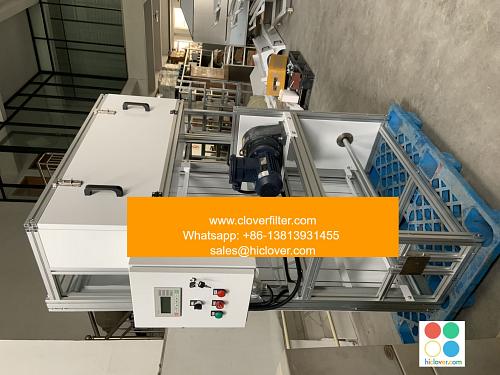The Importance of Air Filtration in Wisconsin Cheese Production

Wisconsin, known as the “Cheese Capital of the USA,” produces over 25% of the country’s cheese, with a wide variety of artisanal, semi-soft, and hard cheese types. The state’s cheese production is not only an essential part of its economy and heritage but also plays a significant role in the national food industry. To maintain the high quality and food safety standards required in cheese production, air filtration systems are essential. This article will highlight the importance of air filtration in Wisconsin cheese production, covering various application areas and discussing the benefits of industrial air filtration in the cheese manufacturing process.
Air Quality and Cheese Production
Cheese production involves several critical processes, including milk reception, pasteurization, curdling, and aging. Each step requires a controlled environment to prevent contamination and ensure the quality of the final product. Airborne contaminants, such as bacteria, yeast, and mold, can significantly impact the quality and shelf life of cheese. Effective air filtration systems can remove these contaminants, providing a clean environment for cheese production.
Application Areas for Air Filtration in Cheese Production
Air filtration is crucial in several areas of cheese production:
– Cleaning and Packaging Areas: To prevent re-contamination after the cleaning process and before packaging.
– Aging Rooms: Maintaining a controlled atmosphere is vital for the development of flavor and texture in aged cheeses.
– Production Lines: Protecting the product from airborne contaminants during processing.
– Storage Facilities: Ensuring stored cheese remains free from mold and bacteria.
Benefits of Air Filtration in Cheese Production
The integration of industrial air filtration systems into Wisconsin cheese production facilities offers several benefits:
– Improved Product Quality: By reducing airborne contaminants, the flavor, texture, and shelf life of cheese can be significantly improved.
– Enhanced Food Safety: Minimizing the risk of contamination protects consumers and enhances the reputation of Wisconsin cheese producers.
– Compliance with Regulations: Meeting or exceeding FDA and other regulatory standards regarding food safety and quality control.
– Increased Efficiency and Reduced Waste: Effective air filtration can lead to fewer defects and less waste, improving overall production efficiency.
Choosing the Right Air Filtration System
Selecting the appropriate air filtration system for a cheese production facility involves considering several factors, including:
– Type of Cheese Being Produced: Different types of cheese have unique environmental requirements.
– Size and Layout of the Facility: To ensure adequate coverage and efficiency.
– Existing HVAC Systems: Integration with heating, ventilation, and air conditioning systems for optimal performance.
– Maintenance and Operating Costs: Balancing initial investment costs with long-term operational savings and benefits.
Conclusion
In conclusion, air filtration plays a vital role in maintaining the high standards of quality and safety that Wisconsin cheese production is known for. By understanding the importance of air quality control in various application areas of cheese production, manufacturers can select and implement the most appropriate air filtration solutions to enhance their processes. As the cheese industry continues to evolve, the integration of advanced air filtration technologies will remain a critical component in producing high-quality, safe cheese products that meet consumer demands and regulatory requirements.

